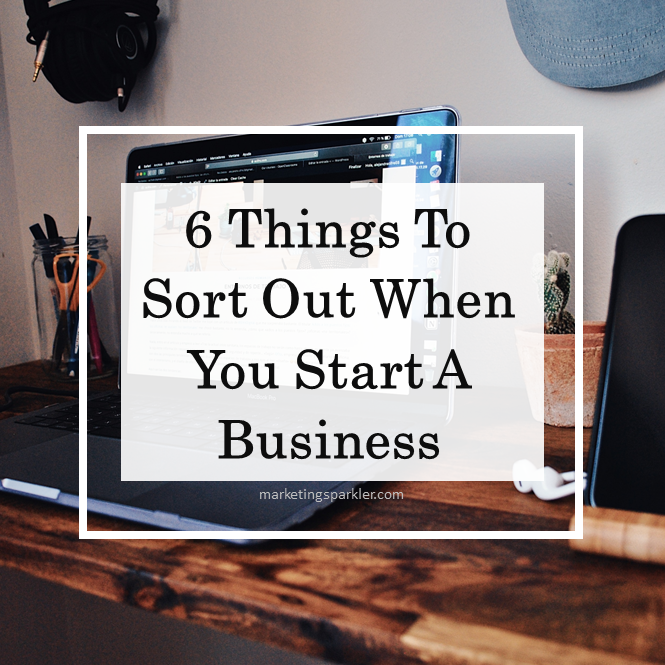Starting your own business is a thrilling and fulfilling endeavor. It’s also one of the longest processes there is. There are a plethora of potential considerations that you need to make in order to be successful.
If you’re like many new business owners, you have already started posting on social media, and telling friends and family about your business.
That’s not what we’re talking about here. Here, we’re going over the essential things that are often not considered.
Six Things To Sort Out When You Start A Business
Establish An Online Presence
Now you may be thinking, this one is obvious! However, there are many businesses today that think they don’t need a website, that social media is enough. Well, it’s not. You don’t own social media. Which leaves you at the mercy of the platform.
This means you need to establish your web presence before launching your company. Keep in mind that your competitors already have a digital presence. Create a user-friendly and aesthetically pleasing website. Develop material that is both search engines optimized and a showcase of your skills and expertise. Keep your customers in mind when designing your website.
Explain the inner workings of your company through various media, such as videos and podcasts. Pay attention to the platforms where your target demographic spends the most time online such as Instagram or Facebook. Communicate frequently with your followers by posting frequently. If you’re trying to boost traffic to your website it may be worth having a look at how to get funding for your startup so you can market properly.
Manage Financial Resources For A Startup
One of the first things to do, whether your new firm is currently up and running or just an idea, is to get the finances in order. If you want a successful and expanding firm, you need to pay close attention to money matters. You should always live by the rule of personal and business finances are separate. Try paying yourself a wage each month from your business funds.
Keep Your Money In A Business Account
It may seem obvious, but opening a company bank account that is distinct from your personal account is a crucial first step. It can affect how you manage your finances, file your taxes, run your business, and put money into the bank, even if you’re a sole owner. So, take baby steps.
Having your business and personal funds intermingled makes tax preparation more challenging and makes it more difficult for the IRS to ascertain the nature of your enterprise. Keeping your company’s finances in one place makes it easier to ascertain its worth.
Examine The Costs Of Doing Business
Earnings before interest, depreciation, and amortization are known as “revenue” for your startup. You shouldn’t waste money on infrastructure just because you can write it off on your taxes at the end of the year. Still, it pays to shop for the most advantageous price.
Let’s imagine your company relies on automobiles, vans, or trucks for transportation. If incidents happen during the day and others are wounded, you will need solid liability insurance to pay for the medical bills. Obtaining affordable, high-quality insurance is a surefire way to boost earnings.
Invest In Cyber Security
It’s imperative to put money into cyber security today. There could be significant additional costs if you do not invest in safeguarding your company’s data. The price tag for a data breach might range from few thousand to several million dollars. A tiny company may go bankrupt as a result of this. You’ll have to foot the bill for everything from root-cause analysis and repair to compensation, fraud losses, and brand restoration. The penalties for breaking the guidelines are steep, to say the least. The wisest course of action is to prevent this from occurring.
Order Fulfillment
Of course the purpose for starting a business is to make money, which means you need to sell your products and services. You need to establish a process for order fulfillment. This can easily be overlooked when you’re first starting out because you don’t have any customers yet. However, this is the perfect time to figure out how you’re going to fulfill orders, before you get busy!
Order fulfillment can include everything from packaging and shipping, customer service, order notifications, and delivery of the product or service. What happens when someone wants more information? What happens when someone places an order? Ensure you have these processes is place as part of your Standard Operating Procedures before you misstep and customers start complaining.
These are six things that you need to make sure you get sorted when starting a business. Do you have any others that need to be included? Please share them in the comments below.
Ciao,
Miss Kemya
